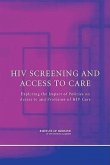When the end of life makes its inevitable appearance, people should be able to expect reliable, humane, and effective caregiving. Yet too many dying people suffer unnecessarily. While an "overtreated" dying is feared, untreated pain or emotional abandonment are equally frightening. Approaching Death reflects a wide-ranging effort to understand what we know about care at the end of life, what we have yet to learn, and what we know but do not adequately apply. It seeks to build understanding of what constitutes good care for the dying and offers recommendations to decisionmakers that address specific barriers to achieving good care. This volume offers a profile of when, where, and how Americans die. It examines the dimensions of caring at the end of life: * Determining diagnosis and prognosis and communicating these to patient and family. * Establishing clinical and personal goals. * Matching physical, psychological, spiritual, and practical care strategies to the patient's values and circumstances. Approaching Death considers the dying experience in hospitals, nursing homes, and other settings and the role of interdisciplinary teams and managed care. It offers perspectives on quality measurement and improvement, the role of practice guidelines, cost concerns, and legal issues such as assisted suicide. The book proposes how health professionals can become better prepared to care well for those who are dying and to understand that these are not patients for whom "nothing can be done."
Bitte wählen Sie Ihr Anliegen aus.
Rechnungen
Retourenschein anfordern
Bestellstatus
Storno







